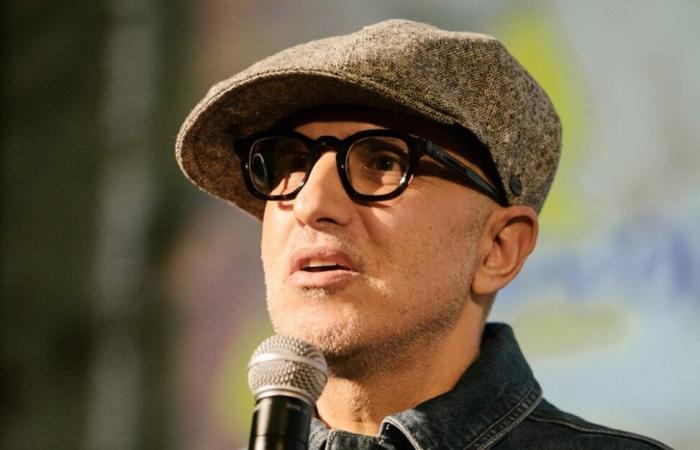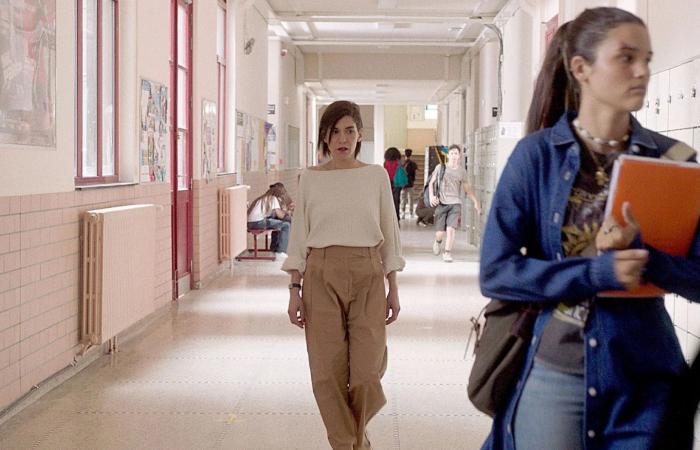The camera no longer holds any secrets for him, but society will always have its gray areas that images and text never highlight enough. This is the primary vocation of Jawad Rhalib, who makes his cinematographic expression a permanent questioning of the issues that are so close to his heart, as an observer and actor in his environment.
Already since the 19th century, the French writer and critic Jules Janin has believed that “journalism leads to everything, provided you get out of it”. This is what best defines the career of the Belgian-Moroccan filmmaker, who trained in audiovisual practice as a documentary filmmaker, reporter, presenter of the program “Ecologia” for Al Aoula in Morocco, or even director of fiction.
Both sensitive to cinematographic language and to socio-economic and environmental realities at the local level, he finds in pictorial writing for the big screen a better means of expression. It was on this occasion that Jawad Rhalib participated in the Marrakech International Film Festival (FIFM 2024). During this 21st edition held from November 29 to December 7 in the ocher city, he presented his new documentary, “Since I was born”.
25 years of documentary in Morocco and elsewhere
Supported by 2M and RTBF, this latest feature-length documentary by Jawad Rhalib follows, during four seasons over one year, the journey of Zahia, a little girl aged 13 today. In her remote village, she dreams of continuing her studies beyond primary school, to become a teacher, under the influence of her own teacher, who we also see on screen.
In “Since I was born”, the young schoolgirl must face both social and climatic constraints. For economic and infrastructure reasons, many parents in her village take their daughters out of school once primary school is completed. They thus take care of the maintenance of the family home, or of other brothers and sisters, then an early marriage is necessary.
“In the films, people say that little girls suffer domestic violence. We follow this journey without knowing what will happen at the end. The fact remains that Zahia is trying to lead a gentle revolution with her father, to convince him to leave her at school,” explains the director, the day after the screening of his feature film.
Born in Meknes where he obtained his literary baccalaureate, Jawad Rhalib knows only so well the issues linked to the situation of little girls, even more so in rural areas and in the areas most impacted by climate change. His numerous professional trips across the regions of the country have informed him about the extent of the phenomenon, beyond the statistics which only retain the figures from experiences.
“Just before this film, I made a feature-length documentary called ‘Fadma – even ants have wings’, where I saw this in the High Atlas regions as well. My work on the show ‘Ecologia’ for Al Aoula for years also allowed me to discover Morocco in several facets,” the filmmaker tells us.
After studying at the Catholic University of Louvain-la-Neuve in Belgium, Jawad Rhalib travels back and forth to Morocco. He collaborates with production companies and touches everything: documentaries, fiction, television programs… All this opens his eyes more to the ills of his society: situation of women and girls, nature and environment.
“These realities exist, unfortunately. They will continue as long as there is no political will and awareness of the importance of education and culture as cornerstones of our development, and of our human development. A people who are not cultured are bound to disappear.”
Jawad Rhalib
Education through cinematic culture
It is also thanks to cultural practice that horizons have opened up, for Jawad Rhalib. During the 1980s, he assiduously frequented the Empire Cinema in Meknes, where the free film club introduced him to great auteur films from the four corners of the world: France, Brazil, Italy… He was deeply influenced by the works by François Truffaut, or even Federico Fellini, among others.
As is the tradition of film clubs in Morocco, during the 1970s and 1980s, these screenings are not only an opportunity for film buffs to discover creations from other territories, but they also constitute a meeting point for exchanges. and debates. Jawad Rhalib thus develops a solid cinematographic culture, anchored in reality and in society. Over time, he already felt “the need to express things” and to do so using a camera.
From the end of the 1990s, Jawad Rhalib stood out with the documentary “In the name of coca”, thanks to which Evo Morales, president of Bolivia from 2006 to 2019, revealed the reality of local coca farmers (cocaleros) in the region. of Chaparé. In 2000, this investigative work earned the director the audience prize at the International Festival of Grand Reportage and News Documents (FIGRA). The more he is confronted with unsaid things, the more he is determined to express himself through images.
In 2006, Jawad Rhalib directed “El Ejido, the law of profit”, prize for best documentary at Fespaco 2008. He then released “The Wretched of the Sea” (2013), “The Song of the Turtles” (2016), ” Les Hirondelles de l’amour” (2018), or “Au temps ou les Arabes dansait” (2020), also awarded at Fespaco and in several festival, before producing “The Pink Revolution”. At the same time, he launched into fiction from 2014 with “7 rue de la Folie”, then “Insoumise”, jury prize at the FIFM 2015.
In Morocco, his travels brought him face to face with the evidence that economic issues often have social implications that need to be addressed. “As I do not know how to remain silent, particularly on ecology, my remarks were not always received positively. So I wanted to do something where I would address everyone, without anyone telling me not to get involved in things that don’t concern me,” he tells us.
By launching his show on the first national channel, Jawad Rhalib is this time confronted with what he describes as “censorship”. “Once the editing was finished, we had to come back to it and it got harder and harder. From there, I wanted not to limit myself in terms of what I wanted to say,” he still remembers.
When journalism and cinema converge on fiction
Combining the journalistic approach to the creative process, Jawad Rhalib now feels he is in his place. As a filmmaker, he has the freedom to navigate between reality and imagination, to find the right words and images that correspond to his thirst for expression. But with each project he undertakes, he places the same demands on himself in terms of rigor.
“Whether for fiction or documentary, you always have to document yourself, investigate, know how to ask the right questions, check several times and with several sources,” says Jawad Rhalib, who says he has adopted the same approach, upstream of his latest feature film. Entitled “Amal, a free spirit” for its release in France, the opus was a great success.
“Amal” is the story of a high school teacher (Lubna Azabal) in Brussels. She pushes her students to express themselves freely, particularly on issues of gender and sexual orientation of some of their classmates. By deciding to teach the Arabic poetry of Abou Nouwâs, she was confronted with an outcry, to the point of feeling threatened. For Jawad Rhalib, tackling societal questions anchored this time in realities in Europe, in a context of identity tensions, was a way for him to put the balancing act to the test.
“It’s a very sensitive creation. It was therefore necessary to be very precise, not to leave room for criticism or a breach so that the people who are criticized in this can react, hence the investigation and the documentation. This is also journalism.”
Jawad Rhalib
The director still insists on the importance of education and culture, which he highlights in both documentaries and fiction, notably in this film. “I grew up with an open mind which educated me to accept others, to have an obvious conception of the right to be different. This is what I show, in ‘Amal’, through this Arab poet that I studied myself, at public school in Morocco,” he tells us.
Lubna Azabal as Amal / Ph. K-Films
“In the past, we had Islamic education classes, Arabic literature classes including the poetry of Abou Nouwâs, philosophy… In my opinion, this is the very example of the principle of Dîn wa Dunia,” underlines the filmmaker again.
Today, journalistic work has led Jawad Rhalib to cinema, which has initiated him to explore even more themes linked to human rights. From now on, the director makes it his favorite field, as long as there are still questions that he considers necessary to address. “I’m trying to get out of there, I assure you,” he jokes.







